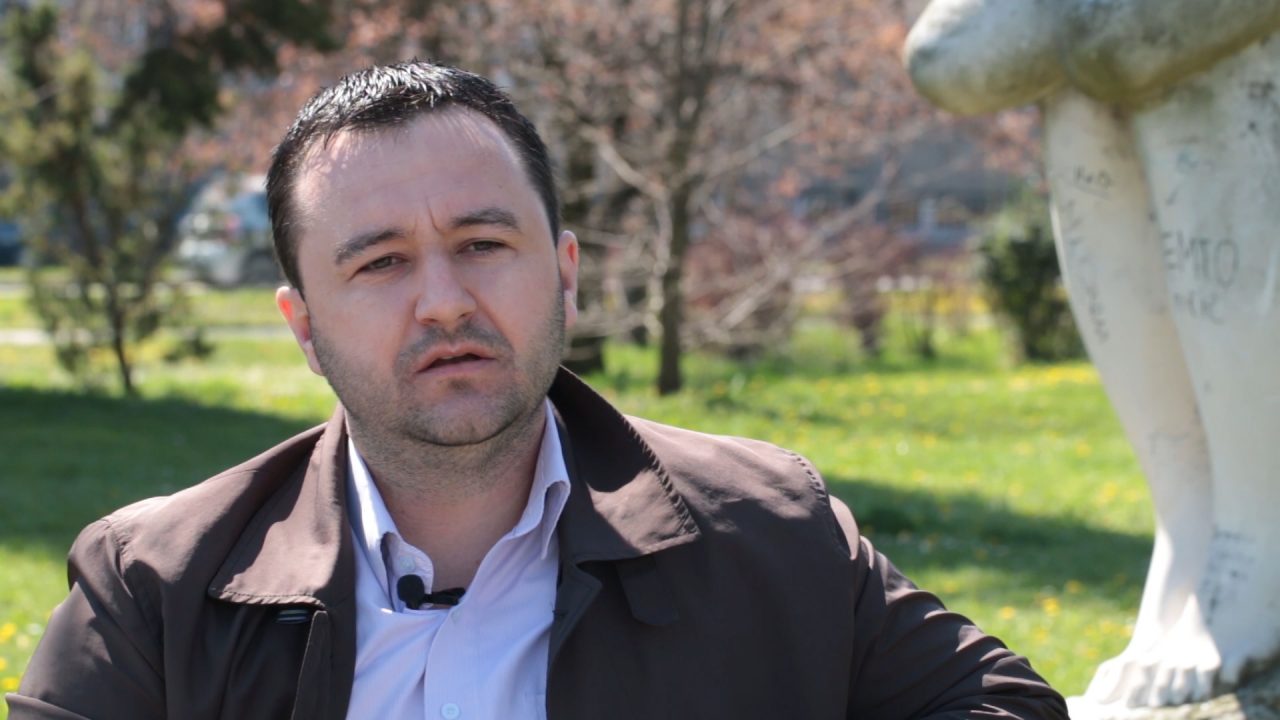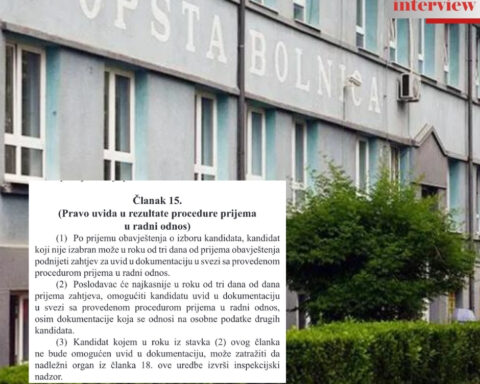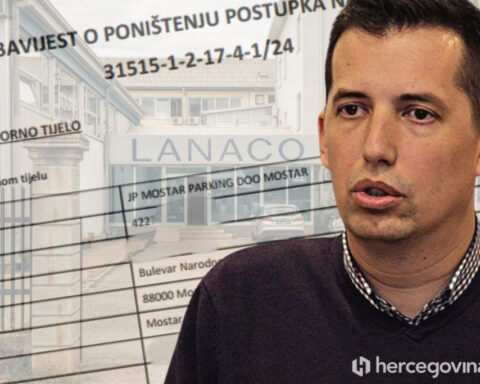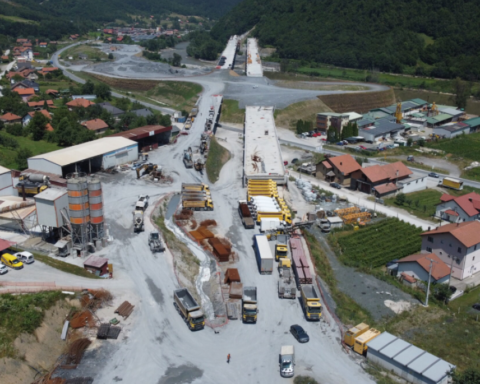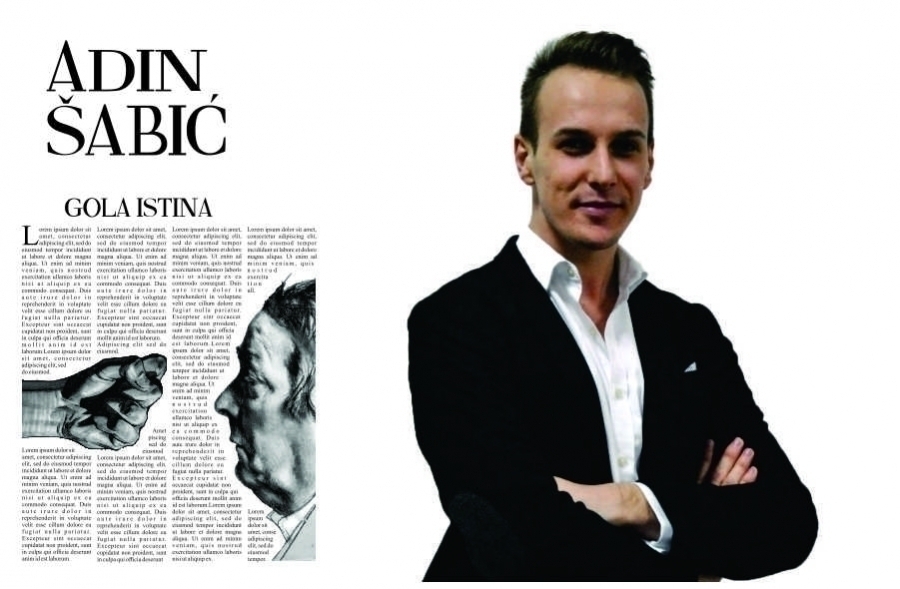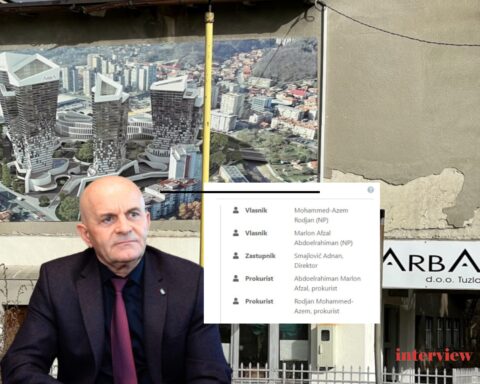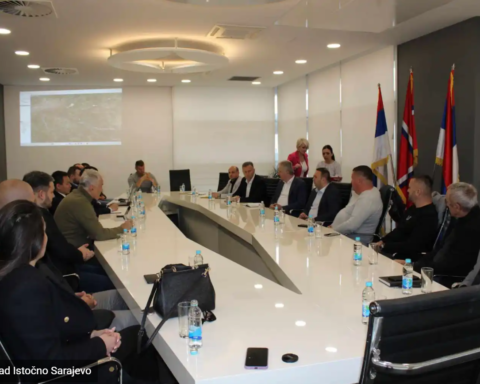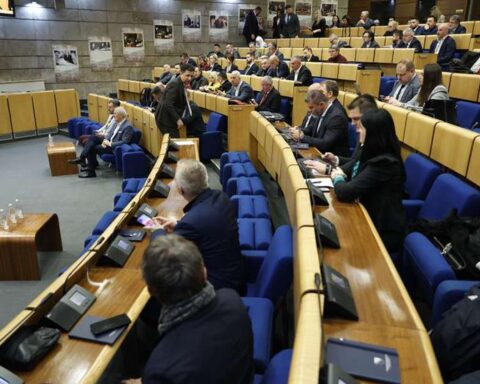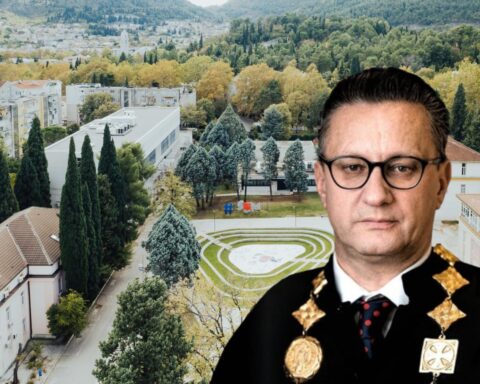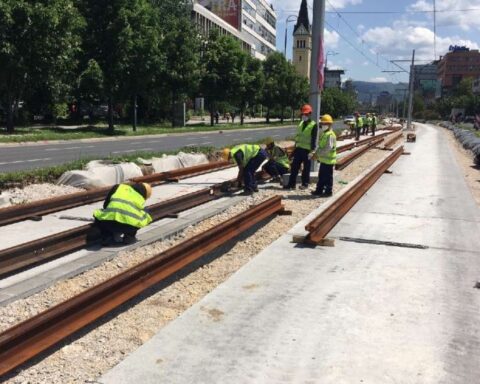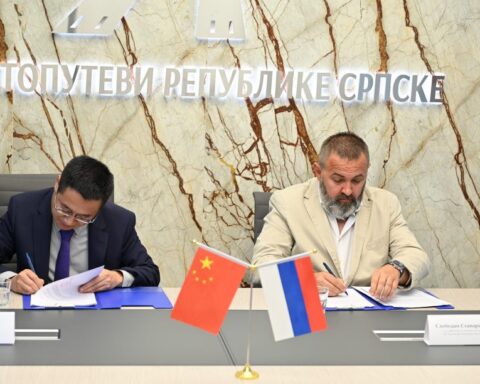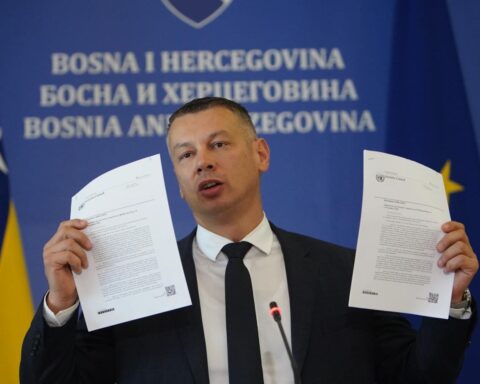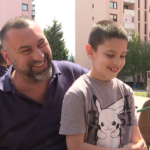For two years now, Emir Mešić has been waiting for the authorities to open the case against the Indirect Taxation Authority. In the meantime, he received fines, charges, and even threats of dismissal. The Agency for the Prevention of Corruption pretends to be both blind and silent about Mešić’s problems, the UIO director himself determines who will punish Mešić and when. And the octopus that spends our money is constantly growing.
Interviewed by: Senka KURT
At the end of 2018, Emir Mešić (35), an economist from Tuzla, became a “whistleblower”.
This means that the Agency for Prevention of Corruption and Coordination of the Fight against Corruption (APIK, Agencija za prevenciju korupcije i koordinaciju borbe protiv korupcije) has given him the status of a protected complainant of corruption. But, apparently, Mešić did not get anything. Except for the recent decision on termination of employment in the Tuzla department of the Indirect Taxation Authority (UIO, Uprava za indirektno oporezivanje), where he has been working for 10 years.
Interview: Can we start from the beginning, from the end of 2018, when you officially became a “whistleblower”. Who did you report and for what, and why did you need protection?
Mešić: I have addressed the Prosecutor’s Office due to irregularities and corruption in the Indirect Taxation Authority of BiH. In fact, firstly I reported UIO to the Office of the High Representative (OHR) and then to the Prosecutor’s Office, for irregularities in renting and charging customs terminals. I have seen that revenues from customs terminals, which are public and which should remain in a single account, are being poured into the pockets of private individuals in an illegal and non-transparent way. Specifically, I reported the influence of UIO Director Miro Džakula and his business services assistant Elvir Muminović. At that time, I worked as an investment associate at the Tuzla Regional Center.
Interview: And how did you know what would happen next, you are also contacting APIK to protect you, to help you, to give you some advice?
Mešić: Yes, after that I received the status of a whistleblower from APIK, and in the meantime, I was transferred to another job, which was paid 20 percent less. So then I appealed to the Civil Service Appeals Board, my appeal was upheld, the UIO decision on the transfer was annulled. But it was returned to the director again. So, I enter a vicious circle. In principle, the fact that I had and still have the status of a whistleblower means that no one was allowed to move me to another job or to give me a lower salary. But in practice, it happens, often.
Interview: What happened to the application you submitted to the Prosecutor’s Office at the end of 2018?
Mešić: I have some information, of course, all of them are trusted and have been verified. The prosecution started investigative actions at the beginning of 2019, and, to my knowledge, a couple of people were questioned in that case. Then, SIPA sent a report to the Prosecutor’s Office on the crime committed. And then that application was on hold, for more than a year. Until recently. Unofficially, I have confirmations that they have launched an investigation, that some of the people I reported are suspects. But we’ll see. We have yet to know the official information.
Interview: Do you have any information, just like me, that some people from SIPA, who investigated the UIO case, specifically your application, were under pressure?
Mešić: I also have the information that some officials had problems. The same matrix that I went through, that my colleagues in the UIO go through – transfer, pressure, blackmail through disciplinary proceedings. Everything to stop this investigation, and not to go further.
Interview: However, in your case, that is, when your “punishment” is in question, the Administration goes further. You have been transferred, you have a lower salary, you are threatened with dismissal. How come APIK didn’t take responsibility for you, how come they didn’t protect you when you are already a “protected whistleblower”. What is happening with APIK and inside APIK?
Mešić: I addressed APIK on the occasion of my transfer and on the occasion of two disciplinary reports, which I received from the UIO unfoundedly and in an illegal manner. APIK answered nothing concrete, except that there are, as they claim, harmful actions towards me. And that’s all I can say about my transfer and two disciplinary proceedings. These days, I wrote to APIK again, after I received the decision on termination of employment, which was made by the first-instance disciplinary commission.
Interview: This is a new situation now. In which, obviously, you have to rely only on yourself and your friends. What does that mean? Do you lose your job?
Mešić: Not yet. I hope that that will never happen. The decision is not final, I am going to appeal to the second instance disciplinary commission. I must say that this commission is also appointed by the director Džakula, who is certainly interested in getting rid of me. But I am an optimist. I’m not counting on not winning at all. About 15 days ago, I turned to APIK again, to reconsider my decision, to determine that these were harmful actions against me. I am an optimist because the argument is on my side. They haven’t answered me yet. In fact, there is no time limit by which I should get an answer.
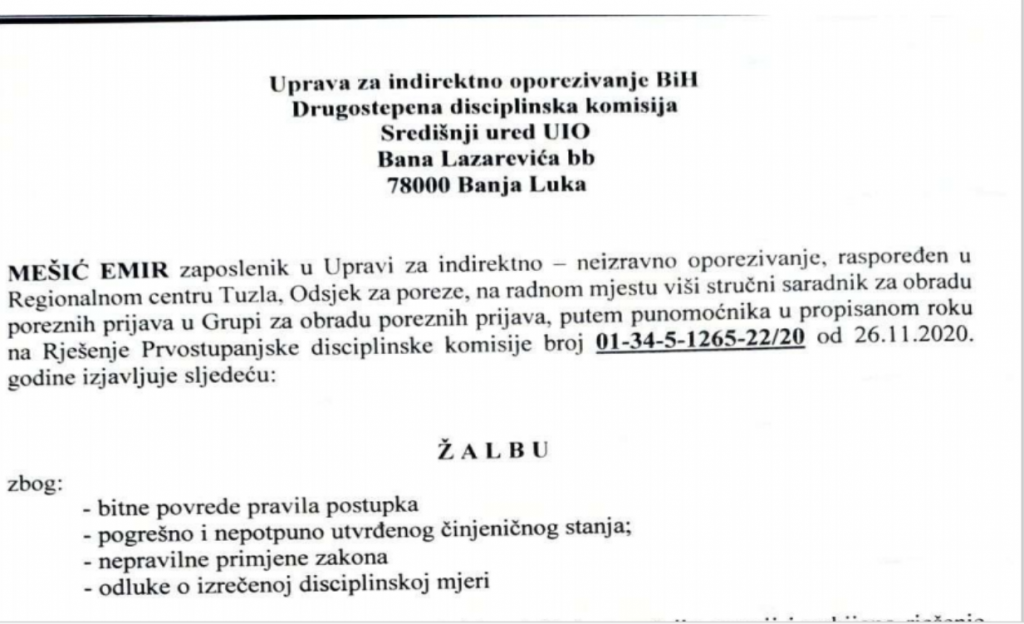
Interview: And if they say that they can’t do anything?
Mešić: I am going to seek protection from the Court of BiH. Now I am just waiting for what the second instance disciplinary commission will decide. They need to decide within six months.
Interview: I have to go back to APIK again. How is it possible that they are so deaf to all the problems you are facing? Your colleague from Brčko, Danko Bogdanović, had a legal Golgotha similar to yours. It seems to me that APIK was much “friendlier” towards him.
Mešić: I talked to my colleague Bogdanović. It didn’t go so smoothly for him either. For two years, also as a “whistleblower”, he was out of work. Only when he received the final judgment of the Court of BiH, APIK, after 7 months, issued an instruction to the Director of the UIO to return him to work. I also know that in this case there were big problems with the chief inspector who did not want to write a report to Džakula for seven months because he didn’t return his colleague Bogdanović to work even after the decision of the Court of BiH. Fortunately, this case ended well. But you can see how these things go.
Interview: And time goes by. Over time the pressures get stronger, you receive a lower salary, you are under more stress. Mr. Mešić, when we underline everything, this costs you a lot of nerves, time, and money. How do you handle that?
Mešić: It costs. Mostly because, after I reported the irregularities, I expected the investigation to start and other irregularities, in other locations, which, I know, there are, reliably. I expected an investigation to begin regarding the actions of Director Džakula at other terminals. That, unfortunately, did not happen.
Interview: When you went into all this you surely knew that there would be inconveniences, that you would go through a lot of injustice…
Mešić: Truth be told, I did not expect all of this. Honestly, I didn’t. I thought I would have better APIK protection. I am aware of everything, however, this struggle of mine has been going on for a long time. That report is just the culmination of all the irregularities I have witnessed, everything I have experienced. When you work to protect public revenues, public resources, only then do you see how much resistance there is to that. In fact, you understand that corruption is a game in which you know exactly who is participating, giving, and taking. It is an organized system in which all public interests are subordinated to the personal interests of certain people through party groups. And this is specifically about the SDA, HDZ, and SNSD.
Interview: No matter what, to that strong octopus with which the fight is unequal, especially when led by an individual, it seems to me that you are not giving up. Well, I’m sorry in advance, somehow it all seems brave and crazy at the same time.
Mešić: I never give up, I am convinced that I will win. And very soon.
Interview: What makes you so optimistic. APIK is not doing anything, the Prosecutor’s Office is procrastinating, the pressure continues?
Mešić: It’s simple. That is the way it is supposed to be. I have integrity, I stick to my actions. It’s a matter of character. Some of my colleagues are going through these problems now. Nobody gives up, they fight, they get verdicts in the courts. That is why I am convinced of my victory. I believe that my struggle is a great investment for the future of this country.
Interview: Speaking of colleagues, I guess some have given you support, those who have told you: Give up, it’s a fight with windmills, those who have started to turn their heads away from you.
Mešić: It was everything you mentioned. But, I must say, most colleagues are supporting me, giving me support, helping me, and encouraging me. I hope that this is the beginning of a serious awakening of consciousness in which individuals must not be allowed to capture institutions and the state, public revenues, to spend money from taxes and revenues, which we pay.
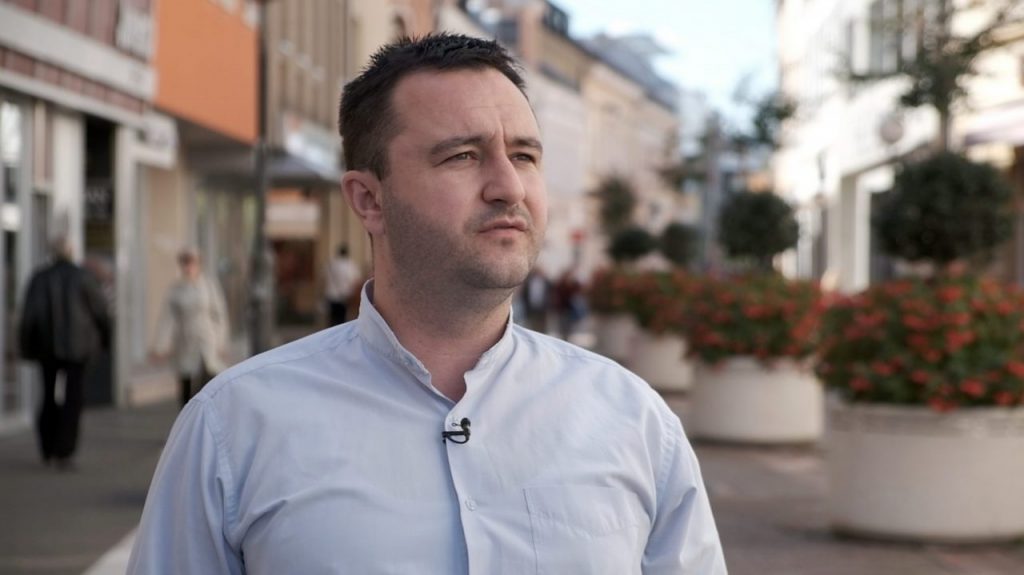
Some colleagues are fighting on their own, they do not trust the institutions, that is why they did not ask for the status of a whistleblower. Or they did, but APIK did not support them. It sometimes seems to me that APIK is a purpose unto itself. It is just the same if we would ask the question how is it possible that a man who is on the blacklist of the American administration due to corruption, is in the NO of APIK, Nikola Špirić. Then we see that we have to influence the change of system.
Interview: What is next if you lose this battle?
Mešić: Nothing. I will keep fighting, I will not give up. I have a basis in truth and argumentation, in my desire to change and influence a better future in society. And I believe it will happen.

